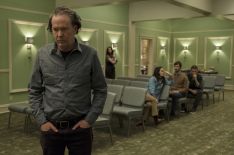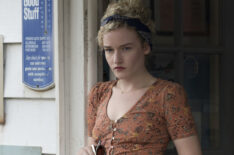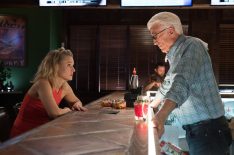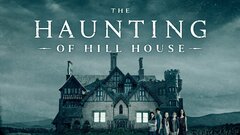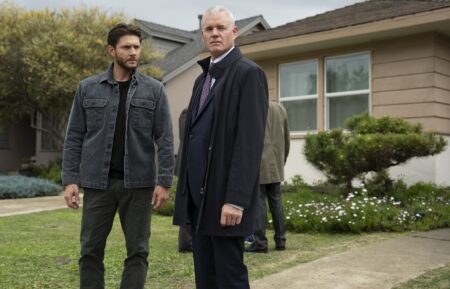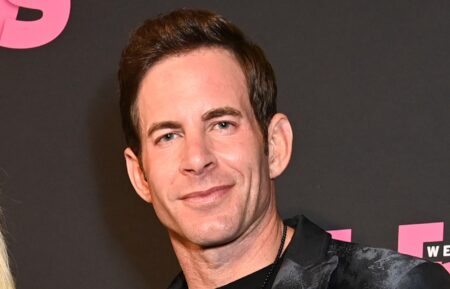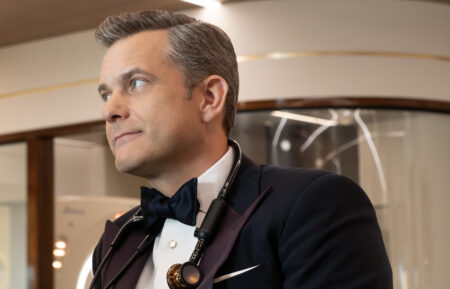Ask Matt: Reacting to Revivals (‘Murphy,’ ‘Conners’), ‘This Is Us,’ Netflix Bloat & More
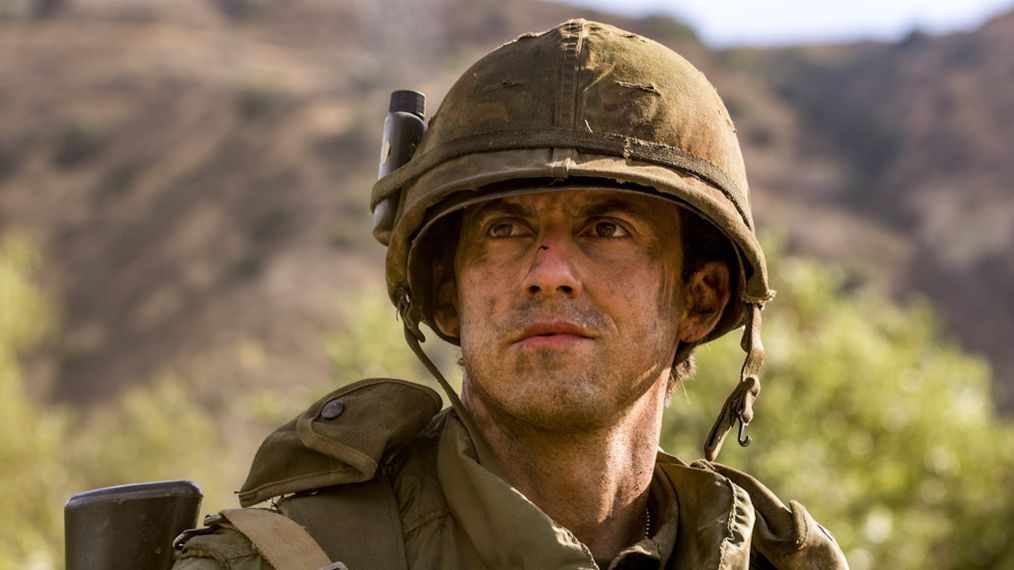
Welcome back to the Q&A with TV critic (also known to some TV fans as their “TV therapist”) Matt Roush, who’ll try to address whatever you love, loathe, are confused or frustrated or thrilled by in today’s vast TV landscape. One caution: This is a spoiler-free zone, so we won’t be addressing upcoming storylines here unless it’s already common knowledge. Please send your questions and comments to [email protected] (or use the form at the end of the column) and follow me on Twitter. Look for Ask Matt columns on most Tuesdays and Fridays.
Should Murphy Expand Its Focus?
Question:I just wanted to share my thoughts about the Murphy Brown revival, which I’m enjoying for the most part. However, I have noticed a couple of glaring problems with the series this time around. The first is that unlike in the 1980s and 1990s when the original aired, they have decided not to utilize a secondary storyline or “B-Story” and instead each episode has focused solely on one story. This to me is a BIG mistake, as it tremendously neglects the fantastic supporting cast who in the original series often got their chance to shine in these secondary storylines. This is why Faith Ford was nominated for five Emmys, and Jay Thomas, Joe Regalbuto, Robert Pastorelli and Charles Kimbrough were all nominated for their roles.
Another point I want to make is that by only using an A-storyline and not featuring a secondary plotline, you lose the opportunity to focus on the characters’ personal lives: their marriages, romances, etc. This was often a strong point of the original series, and I find it very odd they haven’t even mentioned the fact that Corky and Miles were once married to each other. We don’t even know if Corky is dating anybody. Do you think they will eventually get around to this kind of storyline, or do you think they will continue to focus each episode around a single topic? Do you think the lack of a B-Story is hurting the series‘ chance at remaining relevant? — Matthew
Matt Roush: This never really occurred to me, that we’d want to go very deep into the satellite characters’ personal lives in a revival that for now is scheduled for only 13 episodes. The issue-driven focus of the episodes we’ve seen to date suggest the new Murphy Brown won’t fall back so readily on the classic sitcom structure you describe, and maybe that is a handicap. (Personally, I have begun to wonder if Murphy as a character might have been better off returning into a new media world with new cohorts, keeping Corky and Miles and the rest as recurring rather than regular characters who tie the show too much to its past. Which is no slight on the original ensemble, which was classic in its prime.) I agree, though, that the retcon choice to ignore Miles and Corky’s ill-fated (and to be honest, ill-advised back in the day) marriage is a bit of a jolt, since both were brought back to the series carrying all that baggage.
Does Murphy’s Scheduling Hurt It?
Question: Just a note regarding Murphy Brown‘s soft ratings: It’s buried at 9:30/8:30c on a Thursday. While I understand Thursday night pays the bills, it’s not at a time slot that says WATCH ME LIVE. It’s also hard to escape reality by watching fake reality. I do like the character of Avery Brown, though. (To be honest, I’d be more fascinated by a spinoff set at the “Wolf Network” and how the token liberal stays sane). — Veronica
Matt Roush: Any time someone asks me about time periods and scheduling, I hear from others who scoff that such things no longer matter in a DVR/time-shifting/streaming universe. Both are right, up to a point, but the broadcast business still relies to some degree on viewers watching live or nearly live, and where and when a show is scheduled can make a difference. In this case, I think CBS is doing as well as it could by Murphy Brown, placing it on the network’s strongest comedy night, behind one of its best comedies (Mom). No time slot is foolproof, but the only comedy alternative in the actual time period is NBC’s underwhelming I Feel Bad, which isn’t much of a choice.
And I like that notion of following Avery into the Wolf Network workplace—if not a spinoff, then definitely the sort of “B”-story Matthew was mentioning earlier. Jake McDorman is such an asset to the new series that he needs to be used more. And I am encouraged by the fact that the Oct. 25 episode features a storyline in which Frank (Joe Regalbuto) begins dating a Wolf anchor (Tony winner Katie Finneran), so maybe Murphy is already shifting gears a bit.
Kudos to The Conners
Question:I was really impressed with the new The Conners show. The cast is magnificent. and I didn’t miss Roseanne at all. I’ve always liked her, but I don’t think she was up to par in the reboot. I will continue watching enthusiastically! — Ter
Matt Roush: It was a powerful premiere for sure, and the personal feedback I’ve been getting supports the producers’ plan to write the Roseanne character off in a way that seemed true to the world they live in—and to the storyline from last season that was already established that she was hoarding and abusing pain meds. I’m very curious to see how the show progresses, and if the audience stays with it.
Less Then, More Now in This Is Us
Question:Give me a break. This Is Us is no more about “this is us,” but this was us, and this was us again, and then this was us again and again. Sorry. I don’t know how long I can keep watching. It’s not what got us interested in the first place. The *kids* can carry the show. We don’t need to see all of the history forever and forever and ever. — Deb
Matt Roush: So this seems to be a reaction to the rave in last week’s column about the “Vietnam” episode, which largely ignored events in the present-day world. I prefer not to get caught in a debate over whether the stories from the past are better than the soap opera of the present—each has their merits and faults—but what sets This Is Us apart from any serialized family drama I’ve seen is its exploration of how the Pearsons’ past (with Jack) informs who they are as adults and who they hope to become. One without the other wouldn’t be as meaningful and resonant a series. And just because we now know how Jack met his maker doesn’t make his story any less relevant or interesting. I’m pretty sure the majority of This Is Us viewers would object to losing that aspect of the storytelling, not to mention Milo Ventimiglia’s presence.
An Endless Haunting
Question: I’m so happy someone else enjoys PBS’s The Durrells in Corfu. I adore that show, and I hope that the success of Netflix’s Bodyguard (also starring Keeley Hawes) means more people discover Keeley’s other amazing projects. Now, as for the real point of my comment: What did you think of The Haunting of Hill House, if you have had a chance to watch any of it yet? — Ellys
Matt Roush: I mentioned The Haunting of Hill House briefly in my Friday roundup the day it premiered, but can’t say much more until I actually get around to finishing it. Which I hope to do by Halloween, although I have several other viewing projects to get through before I’ll have time to dive back in. And time is the real issue here. While I prefer the Shirley Jackson source material to this haunted-family saga, which spends way too much time away from the actual house, my real issue with the Netflix version is, as is so often the case, bloat. There were some very scary moments in the episodes I watched—many of them borrowed from Jackson—but there’s no justification for this story stretching over 10 very long episodes. When I hit the midpoint and saw one episode was 1 hour, 10 minutes in length, that’s when I decided I had to move on. You could watch nothing but Netflix and still not be able to see it all. I don’t have that luxury, and many of the people I talk to about this issue feel much the same way. Which brings me to the next question.
Can Good TV Be Too Long?
Question:This is purely an observation, under the heading of the possibility that having too much good TV is ruining TV. A day seldom goes by now in which a review of yours doesn’t call out a series for episodes that are meandering too much and/or are too numerous. I’m wondering to what degree this epidemic is a function of having to field an overwhelming amount of material. The general public can pick and choose much more. If almost any of these overlong episodes had appeared in a weekly series, say, 10 or 15 years ago, when there wasn’t anywhere near 500 series a year, and no such thing as dumping 13 episodes at once, with another 13 of something else to watch tomorrow, would you have the same criticism? — Brian
Matt Roush: It’s an excellent question, and one I give a lot of thought as I review this new type of programming. Time management is now one of my greatest challenges, and I’m asking myself more and more whether something is worth the investment of time. It’s not always a deal-breaker, though. I think back to Netflix’s Western miniseries Godless, which I loved. Some episodes are almost feature-length, and I remember groaning when I cued one up and realized there goes another hour-plus, but there was enough entertaining content in each chapter that the time pretty much raced by. By comparison, as much as I enjoyed the first season of Ozark, the second season dragged mercilessly—possibly a function of watching multiple episodes consecutively, which tends to magnify a show’s flaws, including pacing. And enough said about the swollen nature of Netflix’s Marvel superhero shows, which are almost punishing (no pun intended, Punisher) with their 13-episode seasons. Would they seem as tedious if the episodes aired weekly? I’d like to think so, but it’s hard to say.
A final thought, at the risk of going on at length (which would be ironic): Sometimes a “supersized” episode deserves to go long. It can be luxuriant or so packed with incident that to compress it does injustice to the story. But often it just feels indulgent. (And does my upcoming rave about Amazon’s Homecoming, starring Julia Roberts, have something to do with it being a half-hour—give or take a few minutes—episodic drama? It’s possible.)
A Good Place for In-Jokes
Question: I love NBC”s The Good Place for a lot of reasons, but the Oct. 18th episode gave me a whole new one: an Easter Egg hidden in the final credits. I’m not sure how many actually noticed it. This season of the show is taking place in Australia and features a number of peripheral bit- part characters who would normally be referred to in the end credits as “waiter” or “woman on elevator.” But they didn’t do that on this particular show, listing the names of the actors and the character names we never got to hear during the episode. All were takeoffs of famous celebrities, all from Down Under. (Mylie Kinogue, Cat Pash, Eeth Kurban, Gel Mibson, Lod Raver, Mark Supial, Waomi Natts, Gvonne Eoolagong and Nicole Mankid.) A nice touch, and for those who actually take the time to read the credits, a final unexpected laugh for a show that’s often full of them. — Aaron
Matt Roush: And don’t forget the credit for “Damon,” apparently a call-out to the influential writer-producer Damon Lindelof (The Leftovers). I’ll admit I didn’t notice the credits when I first previewed this episode on NBC’s screener site. I was paying more attention to the story and the twists playing over the credits. But it’s another sign that the level of invention in this series knows few limits, and a reminder to look in the margins of this show, because you can never tell where the next joke is coming from.
That’s all for now. Thanks as always for reading, and remember that I can’t do this without your participation, so please keep sending questions and comments about TV to [email protected] or shoot me a line on Twitter (@TVGMMattRoush), and you can also submit questions via the handy form below. Please include a first name in your question.
From TV Guide Magazine
How 'Countdown' Recruited Jensen Ackles to Go Full 'Die Hard'
Countdown boss Derek Haas talks creating the character around Ackles, and the cast teases the “Avengers”-like team of the crime thriller. Read the story now on TV Insider.





